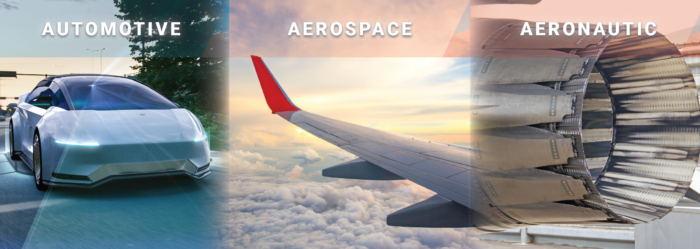
One of the significant impacts of the project is the promotion of sustainability and reduction of environmental impact. The additive manufacturing process used in MADE-3D enables significant energy and resource savings during production, potentially reaching up to 80% for thin-walled parts compared to direct machining. This reduces the use of rare and expensive metals, such as copper, nickel, titanium, and iron, which are crucial elements in metal-based multimaterials. The project’s focus on material savings during production contributes to optimal utilization of rare materials and helps address sustainability concerns.
During the use phase, multi-material components produced through MADE-3D offer advantages in terms of sustainability and reduced environmental impact. Lightweight moving or rotating components, such as those used in transportation or energy applications, require less energy for acceleration and experience lower friction during stable running. This leads to energy savings and improved efficiency.
Additionally, the project emphasizes sustainability through recycling. MADE-3D explores different powder separation methods to efficiently separate and recover utilized materials. By achieving a high recycling level and minimizing waste, the project aims to decrease the need for metal mining and contribute to a circular economy in the field of multimaterials and additive manufacturing.
The market for multi-material products, particularly in the aerospace, aviation, automotive, and energy sectors, stands to benefit from the developments of the MADE-3D project. The technology enables the production of high-quality multi-material structures, addressing the limitations of existing solutions. The project results are expected to lead to shorter lead times for new multi-materials and the ability to tailor mechanical, electrical, thermal, or magnetic properties. This opens up new possibilities for lightweight construction and offers significant performance improvements in various applications.
The end users of the MADE-3D project are industrial customers across various sectors. The technology developed in the project, specifically the multi-material technology, holds special interest for the aerospace, aviation, automotive, and energy sectors. These industries have a demand for high-quality multi-material structures that are currently limited by the lack of suitable technology. The existing solutions do not adequately meet their needs, making the impact of the MADE-3D project significant.
The project’s advancements in multi-material technology offer extended possibilities for various applications, leading to a significant increase in performance. The technology also opens up new possibilities for lightweight constructions in structural design. This means that industries using multi-material structures can benefit from improved performance and innovative design options.